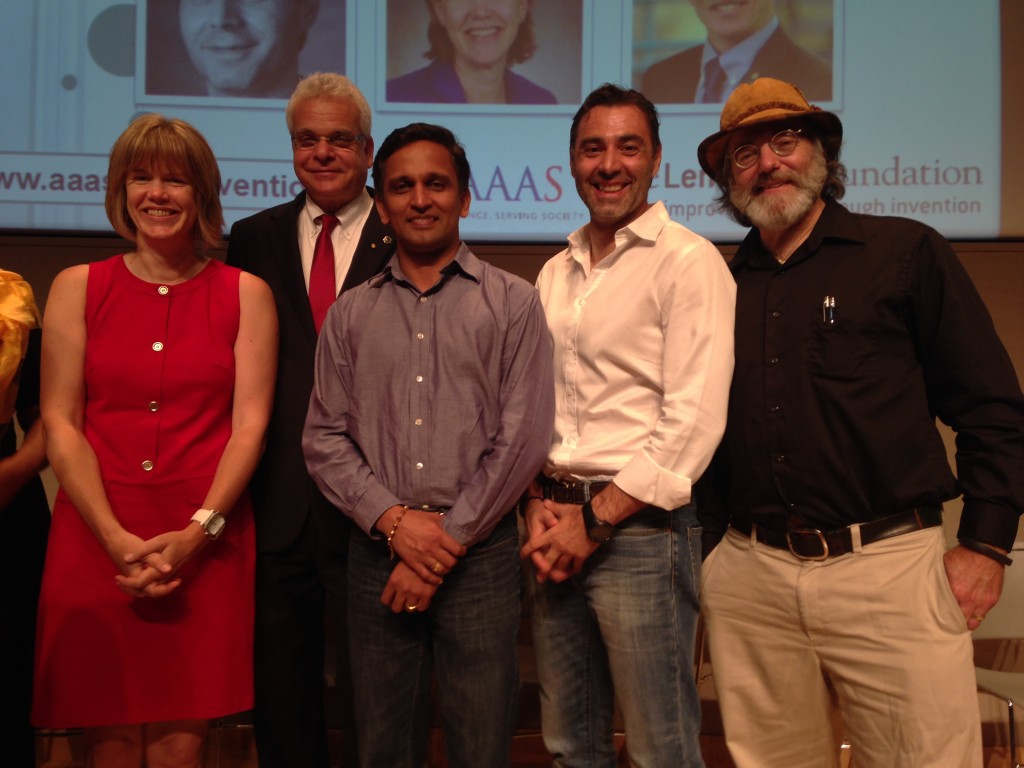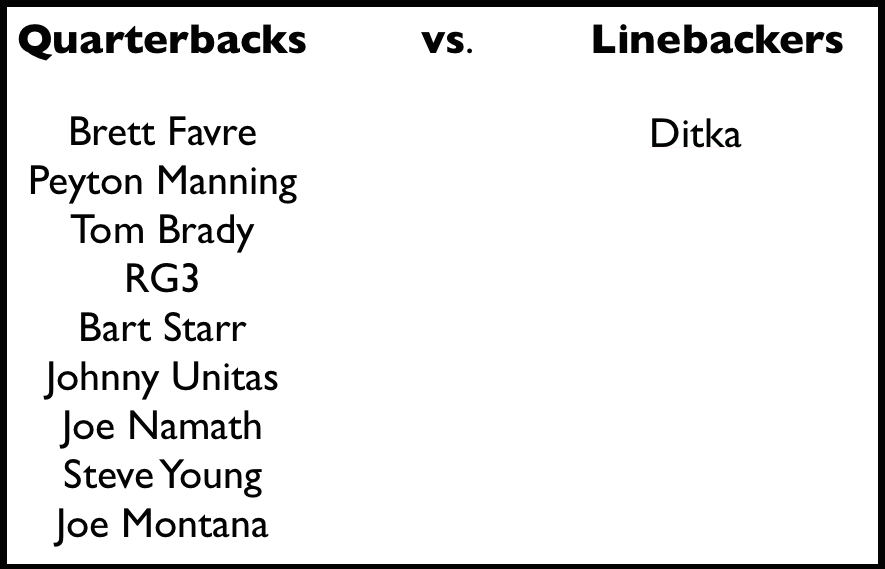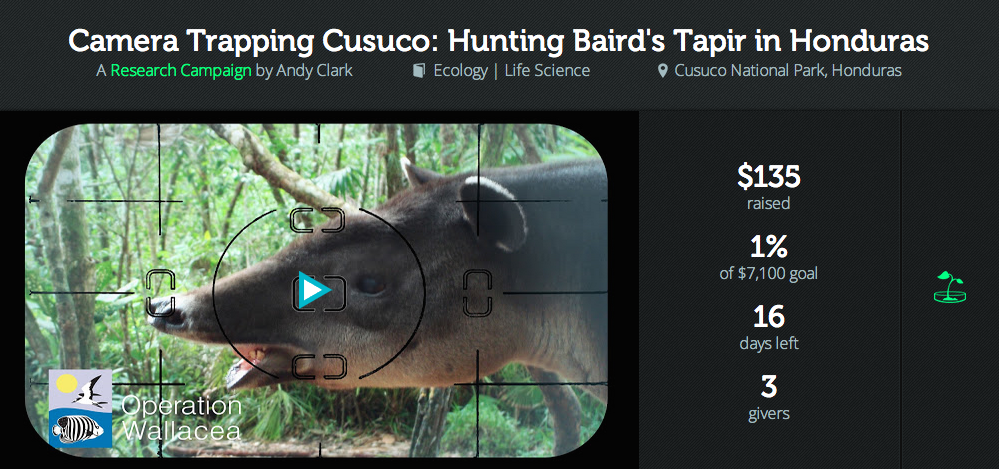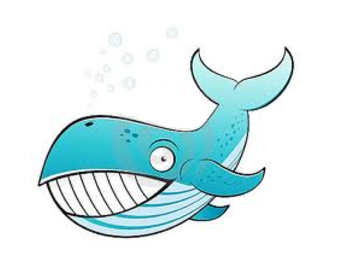#359) Mush Wars in Montana
July 13th, 2014
I’m retitling my talk for Wednesday at the NACCB in Missoula to, “Mush is My Enemy.”
WORSE THAN BO-HO-HORING.
LET’S NOT GET ALL MUSHY
I have two good friends on the inside of US Fish and Wildlife Service and National Parks Service. They’ve been coaching me. There’s a problem and it’s called mush. It’s what happens when good people get together with good ideas and good intentions and everything starts out clearly focused, but as things roll along, ideas and concepts start coming together in a piecemeal manner with too many voices, not enough leadership and eventually what emerges is … MUSH.
Mush is as much the enemy as boredom (which I have whined about in the past). Sadly, in today’s Tea Party-beaten down government, it’s a serious problem. I feel bad for a lot of these government workers. They want to lead, but the voices of opposition have gotten so oppressive from both ends of the spectrum—far right AND far left—that mush seems to become an inevitability.
It’s limited how much can be done to combat it, but the one aspect I hope to help with in my talk is at least making the language somewhat simpler and more clear. One friend sent me a 200 page document they were told to digest and incorporate, but the writing is so bloated and mush-laden that I can see it must be depressing.
There’s only one solution — we must make mush our enemy.
#358) The Communications Tragedy that is Obama
July 9th, 2014
Obama is no Reagan, sadly, when it comes to mass communication.
 “I’M NOT INTERESTED IN PHOTO OPS” (yep, your polls show it)
“I’M NOT INTERESTED IN PHOTO OPS” (yep, your polls show it)
NON-THEATRICAL PERFORMANCE
Yesterday Obama gave a press conference about the current crisis on the Mexico border in which he said, “This isn’t theater. This is a problem… I’m not interested in photo ops, I’m interested in solving a problem.”
Ugh. So noble. So honest. So decent. Really not made for America. And his current poll ratings show it (46% and sinking).
You just don’t say that to the American people. You bite the bullet, you figure out THE perfect photo op, then you play the game. Reagan did it over and over again—giving a speech at the Berlin Wall saying, “Mr. Gorbachev, tear down this wall!” Bush stumbled into disastrous photos (looking out the window at Katrina wreckage). But abstaining is not a successful option.
It IS about theater. Sorry, dude. It just is. Yes, the intellectuals don’t need theater and prefer you avoid it, but this isn’t an intellectual nation. Never has been.
Poor Obama. Go take an acting class. I’m sure that’s what Reagan would have advised.
#357) Is Al Gore the Worst Climate Communicator Ever?
July 6th, 2014
On the cover of Rolling Stone this month he says there’s “new hope” for the climate. But I thought the latest IPCC report said things are more dire than ever. Why would you go with such a cheery, “We’ve about got this thing licked!” message given what everyone else is saying? More importantly, what do you do when hope and truth are in conflict?
SAY WHAT? Yes, I know you have to give people “hope,” but what if that gets in the way of the truth?
“ROUNDING THE CORNER ON CLIMATE” — REALLY?
In 2007 I was on a panel discussion at the LA Times Book Festival with Bill McKibben. At one point he cheerfully said, “I think we’ve rounded the corner on climate.” I did a double take. He cited two big events from the previous year: Gore’s movie and Hurricane Katrina which he felt shocked the public as they got a glimpse at what a climate disaster looks like.
I tried to take issue with him, but it was too soon. It would take another 2 years until Climategate showed how inept the climate science community was with public relations, and 3 years to the summer of 2010 when the last piece of climate legislation would collapse, finally showing how wrong he was on the rounding of any corners.
Now we have the latest IPCC report sounding their most dire warning to date. Just last week I got a bounce-back “AWAY FROM MY EMAIL” message from a major environmental scientist whose outgoing message went on to say, “The IPCC Fifth Assessment reports an observed (likely) doubling in the rate of sea level rise in the last twenty years. Meanwhile, carbon dioxide emissions have been increasing at over 3% per year over the last decade—that compares with an increase of “only” 1% per year in the 1990’s. We need to get to work with a lot more fervor.”
HOPE OR FERVOR?
So which is it? This prominent scientist says we need more fervor. But blasting out the headline of “New Hope” sends the opposite message (and yes, it is possible to have both, technically, but we’re not talking about substance here, we’re talking tone/style—the tone of “new hope” says we’re winning).
Yes, hope is inspiring to those who are already working on the cause—just hearing “there is hope” gives them hope (we dealt with this exact dynamic 12 years ago with our Shifting Baselines Ocean Media Project). But to the average Rolling Stone reader (who does not work every day on climate), it’s a very simple headline that implies, “We’re finally on top of this climate thing,” causing the reader to say “thank goodness, now I can worry about other things.”
Gore’s headline should have been, “We Need New Fervor for the Climate.” And if his answer is, “The editors made that headline up,” then he should have made sure they didn’t. In today’s short attention-spanned world, headlines are about 90% of your communication effort (the text is just a bunch of stuff to justify the headline, meant only for people with a lot of time on their hands).
It was two years ago right now that Australian coral reef ecologist Roger Bradbury published his rather stern and pessimistic OpEd in the NY Times titled, “A World Without Coral Reefs.” He didn’t feel we had rounded anything for coral reefs other than the drain in which they are circling on their way downward. He summed up his thoughts on the environmental community in saying, “conservationists apparently value hope over truth.”
Apparently the same deal for Gore (or at least whoever shapes his messaging).
356) Are Inventors Better Listeners?
July 2nd, 2014
Scientists may not be the best at listening, but what about when they are inventors? I had a mind-altering experience yesterday with the AAAS-Lemelson Invention Ambassadors, leading me to connect the dots with what improv teaches.
THE AAAS-Lemelson INVENTION AMBASSADORS. Among many amazing attributes, they appear to be role models for the ability to listen. From left: Karen Burg, Paul Sanberg, Vinod Veedu, Sorin Grama, Paul Stamets.
LISTEN, DO YOU WANT TO KNOW A SECRET?
In reviewing my first book in Science, Peter Kareiva, the Chief Scientist of the Nature Conservancy noted that the one thing I failed to address adequately is scientists’ inability “to listen.” It was a valid point that made me wish I had added one more chapter titled, “Don’t Be Such a Poor Listener.”
In the years since its publication I’ve had countless experiences that have made me flash back to that comment and think, “He’s so right.” And of course the reason my crazy acting teacher screamed at me the first night of acting class (which was the opening scene of my book) was exactly that — she knew that heavily educated people have a hard time listening.
But yesterday I had my head spun around by the group of five Invention Ambassadors assembled by the American Association for the Advancement of Science. Actually, the head spinning began two weeks ago when I started a series of phone calls with each of them, listening to what they planned on presenting in their 12 minute talks to the public (I was brought in by the AAAS folks to work with them on their presentations).
I went to work with them searching for good stories in the “moments of discovery” that I knew they all must have experienced. Sure enough, each one had a single great moment to relate that included a moment of collaboration, a moment of pulling a discovery out of the ashes of failure, a moment of breaking the boredom with a discovery, a moment of using a daughter’s Barbie Doll dish to take care of a carpenter ant problem with mycelia, and a moment of realizing there are large numbers of inventors at universities who suffer the same perception problems of the academic world not appreciating their efforts. Five great stories.
But the thing that stunned me was their ability to listen. I had feared I might have a group of people saying, “Look, we’ve given lots of talks, we don’t need your input.” I mean seriously, one of them had given a TED Talk that has scored over 2 million views. Why wouldn’t they tell me to get lost? But they didn’t.
THE MAGIC OF LISTENING
They listened. They experimented. They pushed my suggestions further. And they ended up giving really great talks that will be posted soon.
I think what was most important was what they didn’t do—they didn’t negate. They basically took every suggestion with the same sort of, “Yes, and …” approach that is the centerpiece of improv training.
I don’t think this is a coincidence. The ability to listen like this is not something that people pick up overnight. It’s a long term process. I see it with improv instructor Brian Palermo. He is unlike anyone I’ve ever collaborated with. He’s really great to give notes to because he is so deeply trained, with his 20 years of improv experience, in how to listen.
It’s a crucial resource. This Invention Ambassadors program is a new thing for AAAS. They are just now figuring out how to make best use of them in the upcoming year. I think one thing they should have them talk to the science community about is how they all seem to have developed this exceptional ability to listen. There are lots of very impressive things about these five individuals, but to me, this is one of the things I really wasn’t expecting. And again, I’m certain it’s not a coincidence. Great ideas come from people who know how to listen.
#355) CLIFF POODRY: The right sort of voice for science
June 11th, 2014
Sorry. I’ve been holding back on this. Time to let it out. Two major science-based TV shows this spring have bored cosmically. But just when I found myself wondering if things have to be this way, I spoke at an NIH postdoc conference and heard one of the best speakers I’ve ever listened to — Dr. Cliff Poodry of Howard Hughes Medical Institute. He’s a living example of the ABT way of thinking, as in: Always Be Telling stories. He’s also the sort of “trusted and liked” voice that Daniel Kahneman talked about. The two TV shows were narratively dull (so many friends emailed me saying they were both just “and, and, and” presentations) and excessively obsessed with the celebrity element. But effective mass communication really isn’t that difficult. HBO Real Sports with Bryant Gumbel has no trouble accepting that the public isn’t that interested in sports. Why can’t science people realize the public isn’t that interested in science? Cliff’s talk was a tour de force of narrative instinct at work. He is a true role model and it was a treat to get to speak the next day, following him. And guess what the core of his talk was about — humans (science was secondary).
DR. CLIFF POODRY, THE VOICE SCIENCE NEEDS. He gave a tremendous talk on Sunday evening at the NIH IRACDA conference in Albuquerque. If you want to see everything I have advocated in my books brought to life in one person, this is the guy.
“YEARS” BORED, “COSMOS” SNORED
Okay, the wannabe hipster science folks have now taken their shots and failed. It’s time for a little honest assessment.
I’ve held off saying anything publicly about the two major TV series this spring “Cosmos” and “Years of Living Dangerously,” but I can’t contain it any longer. If you search “COSMOS BORING” you will find heaps of websites conveying their disappointment with Neil deGrasse Tyson and the “Cosmos” series (they should include in their critiques co-creator Seth MacFarlane, whose current movie has 33% on Rotten Tomatoes).
Equally disappointing is the Showtime series, “The Years of Living Dangerously,” which premiered to a cosmically low rating of 0.07 market share meaning that more people were (literally) watching reruns of “Family Feud” than the show that featured George Clooney and Harrison Ford playing journalists (Showbuzz Daily called it a “microscopically low rating”). All I know is that a month ago in Portland at the JASM meeting I asked a group of grad students if they knew the title (not one did), then asked them if they could guess what the show was about — they ALL assumed it was about X-treme sports like motocross. That’s a pretty sad messaging effort when that’s what the youth guess.
CLIFF POODRY, ONE OF MY NEW HEROES
So just when I start to think the communication of science is doomed with boring voices I get a huge surprise. I was in Albuquerque to speak Monday morning to 200 NIH postdocs at the IRACDA conference (which is clearly a beacon of hope for the training of good scientists as it’s an amazing program). It began Sunday evening in the big ballroom at the hotel with the usual science bureaucrats saying stuff that had me groaning inside thinking “can’t they do better than this?”, but then they brought on the featured plenary speaker, Dr. Cliff Poodry, and everything changed.
He was so good I began taking notes on my iPhone (it was all I had for notetaking — I’m sure everyone thought I was texting — they couldn’t have been more incorrect). Here’s what Cliff talked about: Humans. He told stories. They all had structure. They all had a quick set up, an interesting twist, then worked to a clear and thematic point. There was no “what’s he getting to” or “he’s droning on and on” or “I’m lost” that you get with so many science talks.
The next day in my plenary I referred to him so much that he later called me his publicist. But I just call ’em as I see ’em. And he was genuinely inspiring.
You’d have to talk to me directly to hear the specifics, but one example: he had a quote about how when an archer misses the bullseye he doesn’t blame the target. It made me think of the climate crowd who has done such a lousy job with their communications efforts (starting by putting all their stock in a boring climate movie) then blamed the right wing (who ought to be their target) for their failures.
He presented so many perfect quotes and anecdotes. He had a great quote from Max Delbruck about how artists see their work as a solitary expression to stand alone for the rest of time, but scientists give up their work to be absorbed, modified, amplified, and fused with other ideas (it’s such a powerful quote that makes you see why artists are pure ego while scientists are more selfless). So much great material. I wish it had been recorded. But then I’m also glad it wasn’t — you can’t really capture that sort of chemistry with a single video camera (trust me on this, I’m a filmmaker).
SCIENCE NEEDS A HUMBLE VOICE
I’m sorry but there’s something offputting about the desperate efforts to make science cool in recent years. It really isn’t working. What is truly cool about science is the humble side to it. The best and my most favorite scientists over the years knew about cool, had an intrigue with it, but in the end, were so focused on science itself that they simply lacked the element of “self awareness” that undermines cool. Which made them genuinely cool.
It was always the deal with everyone from James Dean to Jimi Hendrix. They didn’t sit and think about cool. They just were. There was something humble about them. And more importantly, there was something non-self aware — which is that thing you find in truly brilliant actors — that ability to live in a world where they’re not pretending that they don’t care what other people think — they truly don’t care. Which makes them interesting to watch.
Cosmos and Years both tried too hard. All you have to do is look at the Variety and Hollywood Reporter reviews for them — they could sense it. The reviewers weren’t very critical, they were just diplomatic in their assessments.
Sadly, there’s nothing special in either series. But there is in science. As Cliff Poodry knows.
#354) Decoding Science: My Mizzou Talk
June 7th, 2014
Great event they put together at University of Missouri back in March. Here’s the talk I gave which addresses the need to make use of narrative dynamics and some of the tools we use in our Connection Workshop to do this.
There I was, there I was, there I was … starting the Q&A at the end of my Opening Plenary for the 3500 scientists attending the Society of Freshwater Scientists meeting in Portland (probably about 1000 of whom came to my talk), only to be totally called out. No excuses. A classic moment.
SPOT THE MISTAKE. It was right there. I blew it.
HOISTED ON MY OWN ABT PETARD
So I was talking about positive and null results in scientific research. Not all outcomes are created equal. There’s a natural predilection for positive results versus null. And I thought up a fun way to look at this dynamic drawing on your knowledge of football.
How many famous quarterbacks can you name? Lots. They create the “positive” patterns in a football game. Now how many linebackers can you name. They work to create null results (no scoring). You probably can’t name many.
I put up this slide, saying I’m not a rabid NFL fan, but off the top of my head I can name all of these quarterbacks plus probably a couple dozen more if pushed.
But what about linebackers? I hit the clicker, up came the name of Ditka, and I said, “this is about it—Mike Ditka.”
I finished the talk. The first guy up for the Q&A, boldly, brashly, bravely offered up his comment as an ABT. He said, “I really enjoyed this talk AND you made a lot of great points, BUT … Ditka was a tight end, THEREFORE you might want to fix that.”
In an instant I was the laughing stock. Stooopid, careless communications dude. I wanted to say, “I knew that,” but it was too late — everyone was in hysterics.
But thankfully someone shouted out, “YOU WERE THINKING OF DICK BUTKUS!” And he was right. Ditka — Dick Butkus. Hopefully you can see how I might make the mistake. No?
That was bad. Never again. Great crowd and a great evening. Really fun. And a perfectly executed ABT to steal my thunder — well done and a memorable moment!
#352) Come on, let’s save the frickin’ TAPIR!
May 14th, 2014
Hey everybody, when’s the last time you saw a tapir? That’s right — it’s been a long while. And now it’s time to reach in your pocket and help save the tapirs of Honduras. Check out this simple, humble video that makes the case for the need to purchase a few video cameras, then give them a donation. Save the Tapirs!
THE TAPIR FORUM. Donate now or a tapir will come visit you and shoot you with a jet of hot urine (watch this https://www.youtube.com/watch?v=zWMfzvBrTqE)
THE ABT OF TAPIR CONSERVATION
It’s a great little video. Doesn’t waste time, gets right to the point, pretty much following the ABT template:
The tapir is a cool animal AND is rarely seen BUT sadly is being severely reduced in number from over-hunting and habitat loss, THEREFORE we need to get a better idea of their population size BUT we don’t have enough video cameras for this WHICH MEANS we need your help in purchasing more video cameras.
Nicely produce, not overly sentimental, just a simple plea and deserving of your support. Spread the word!
#351) FREE APP FRIDAY: For my session at the American Physiological Society’s Experimental Biology Meeting in San Diego on Saturday
April 23rd, 2014
I will be doing a 2-hour Connection Storymaker work session on Saturday afternoon, 3:00-5:00, at the American Physiological Society’s Experimental Biology (EB) Meeting at the San Diego Convention Center. In conjunction with the event we will be making the Connection Storymaker App available for free on iTunes from now until Sunday. Spread the word!
#350) SHARKS AND WHALES: Whatchu Gonna Do When the Bad Guys Go?
April 21st, 2014
(BLASPHEMY WARNING)
The ocean conservation movement received two “setbacks” over the past year. First, Japan was ordered by the U.N. to give up its whaling in the Antarctic. Second, the tide has shifted in the shark finning issue, with China pulling back on it’s shark fin consumption. That’s two great villains removed from the story of saving the oceans. This isn’t an Onion posting I’m attempting here — it’s a serious issue. What do you do when you start to run out of villains? This is why I teach storytelling. It is at the core of EVERYTHING. And it’s a potential, eventual crisis for the ocean conservation community. Foreigners killing whales? Easy to raise money. Copepod populations declining? Not so easy. I’m not making light of these great victories, I’m just saying everyone needs to learn more about storytelling to grasp the complexity of mass communication. As the great screenwriting instructor Frank Daniel always said, “Your story is only as good as your villain is evil.” An “easy villain” shortage is emerging.
HAPPY WHALES TO YOU. It’s been a good year for whales and sharks. So what’s next to protect … the pteropods?
WHO WILL CRY FOR THE PLANKTON?
In the wake of the BP oil spill in 2010, this was a question my former Shifting Baselines partner Jeremy Jackson asked on the Diane Rehm show. It’s a valid question, and it’s a problem.
People support causes when they are motivated. Whales are incredibly motivational. They were motivational enough to save themselves in the 1970’swith the worldwide “Save the Whales,” campaigns. Back then there was one clear villain — the whalers — which made for plenty of motivational stories. But now … ?
What’s going to happen to the Animal Planet show, “Whale Wars“? I see there are other versions being filmed in the Faroe Islands (pilot whales) and Canada (seals), but it’s not quite the same as the big bad Japanese in the Antarctic.
SHARKLESS IN SEATTLE
At the same time as the whale lovers are losing their prime villain, the tide has turned on the issue of shark finning. I heard this last September in a talk from Peter Knights, head of WildAid. I have HUGE admiration for their work in mass media. They managed to do the very thing I was begging for a decade ago — to use mass media as the centerpiece of an environmental campaign.
He said they scored over $200 million in free air time in China with PSAs featuring Yao Ming and Jackie Chan speaking out against shark fin soup (which dwarfs the $10 million we scored a decade ago with my Jack Black Ocean Symphony PSA for Shifting Baselines, and is part of why I am so admiring of them).
The PSA’s were one major element in the Chinese government banning shark fin soup from formal banquets in China. Lots of other stuff followed from that one large gesture. But the net result is the story has now morphed from simple to more complicated.
WHY DO YOU THINK CLIMATE IS SO BO-HO-HORING …
Now you start to see the problem with climate — it’s basically the old Pogo line, “We have met the enemy and he is us.” It’s really hard to motivate the public when the ultimate villain is ourselves.
Bottom line, once again, it’s all about story. Which means that if you don’t have a good enough handle on how story dynamics work, you’ll end up resorting to things like getting the public to believe there’s an island of plastic trash in the North Pacific the size of Texas because “it makes for such a good story.” When in fact there ain’t. The truth is nowhere near as simple, or fun.
With each conservation victory, the communication challenge becomes more difficult. Which leaves you with three options: get better, lie, or quit. Hopefully environmentalists realize the first one is the only viable option.






